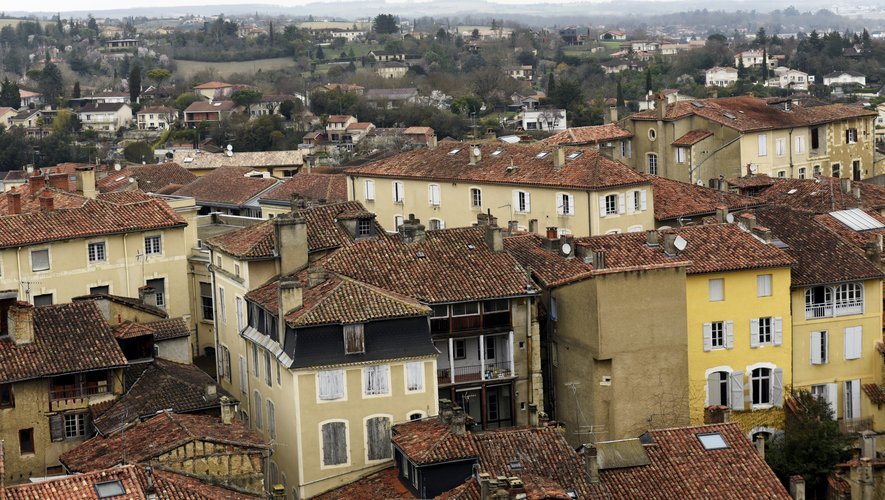Empty housing, unhealthy housing, free housing: In Auch, but also throughout the Gers, the fight against slums, slums and to protect the poorly housed is intensifying on the eve of the winter holidays.
Many homes in Gers are underused: 85% of main residences are underutilized and 36% are very underutilized. The problem of precarity arises due to significant risks from heat and sometimes complex social situations (domestic violence, financial difficulties, etc.).
Rentals, unhealthy housing, free housing, unhealthy conditions: the real estate stock in Gers and Auch is also experiencing its share of difficulties. Housing demand remains strong. “Every week, we process around 15 files for urgent accommodation requests,” says Martine Coulet, director of the Regar association. Public action actors are coordinating to combat citizen precarity and deportations.
Housing poverty is on the rise
In this sense, next November 1 marks the beginning of the winter holiday, which will last until March 31, 2024. More concretely, during this period, the tenant cannot be rented as a tenant in case of unpaid bills, inconveniences or non-compliance with the condominium agreements. Even if the lessor has received a court order notifying the eviction, they will be evicted from their accommodation. However, transactions are initiated outside the deadline.
At least 280 payment orders were issued in the ministry in 2022, compared to 127 in the previous year. Between 2021 and 2022, the number of building exit orders more than doubled, from 42 to 90. Police responded to the department 37 times in 2022 and 20 times in 2021.
Martine Coulet said, “What strengthens the demands for shelter or housing are actually people who are subjected to eviction procedures, although today there are attempts to prevent deportation.” underlines Martine Coulet.
Avoid insecurity
Recently, several coordinated control operations have been carried out between the municipal police, the national police and the hygiene service of the city of Auch. These led to the establishment of various procedures, especially to combat unhealthy housing and slums.
In Gers, according to government services, the most common situations related to unsuitable housing are: non-compliance with the ministry’s sanitary regulations, lack of security, unsanitary conditions and even accumulation of waste/carelessness.
Procedures were also opened against the owners of vacant, freely accessible buildings, with the aim of forcing them to secure them. And this is done to prevent new occupations and to facilitate meetings that would disrupt public order. Other action plans were launched based on the same security plan and against the backdrop of vacant housing. The expropriation that befell the owners of 11 rue Sénéchal in Auch proves this. The former private mansion known as “De Morlan” would have been considered “abandoned” if no rehabilitation measures had been taken.
Preventing Evacuation
The prevention of rent evictions is organized in relation to unpaid bills or even poor health. “The goal is to mobilize the tenant if he is no longer there and not let the situation become critical, making it difficult to have to repay high monthly payments and therefore be respected,” the governor’s office said last May.
Maison du logement, Revivre, Emmaüs, CAF, MSA, Regar Association, SIAO: Many players in the industry intervene at this level. “We can discuss situations where people are in a difficult situation, do not make demands, and suggest intervention strategies. The purpose of this is to avoid leaving them in the situation they are in,” explains Martine Coulet. This may concern people without a fixed address who sleep in cars.
More and more houses remain empty every day
For example, according to a study published by INSEE last April, 11,800 residences were vacant in the department in 2019; This corresponds to 10.6% of the entire stock. In Gers, half of the vacant houses (6,300 houses) have been vacant for more than 2 years. These are generally old houses that are considered “disturbed” according to the same study and are owned by elderly owners according to the cadastral classification.


